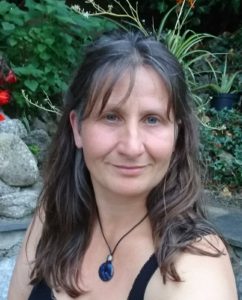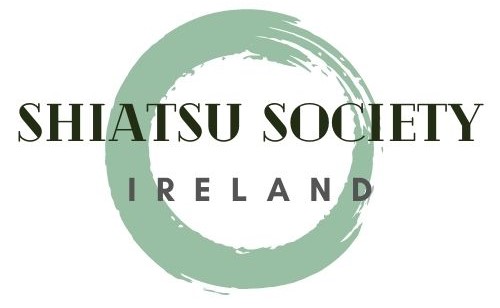News from Shiatsu Ireland
Non-judgmental awareness – A key to personal growth and integrity

by Meike Donohue SSI MScBiol
Shiatsu practitioner and teacher, Meditation Instructor
Who doesn’t know the feeling of not wanting to get out of bed, of feeling sad, empty, dull or frustrated? These negative states of mind come to us all but the question is how can we deal with them? What can we do?
We often try to cope with negative or bad feelings and days by plunging ourselves into “happiness” and denying that we’re feeling that way. We might attempt to counteract them with physical activity, meeting friends for a chat, shopping, positive affirmations and/or visualizations. This is, as such, not a bad thing. Sometimes we need certain tools to bring our state of mind back to some sort of balance and those tools are very helpful. But we should use them with caution. I like to think of them as life-buoys that save us from drowning. Or a ladder that allows us to climb out of the dark hole we have fallen into.
 But after the emergency is dealt with, it would be a good idea to drop these tools. We don’t do ourselves any favours with keeping these behaviours up. The problem is that we’re not really dealing with our feelings at all. We are still running away from something that wants to be seen and released, but we are suppressing and masking our feelings instead.
But after the emergency is dealt with, it would be a good idea to drop these tools. We don’t do ourselves any favours with keeping these behaviours up. The problem is that we’re not really dealing with our feelings at all. We are still running away from something that wants to be seen and released, but we are suppressing and masking our feelings instead.
So how can we deal with strong negative feelings? It hurts badly – and strong, unsettling emotions arise along with hurt. In this situation we can bring our non-judgemental awareness into play.
Non-judgemental awareness is a technique of becoming aware of our feelings, thoughts and emotions without analysing and criticizing them or going into their story/drama. It is taking our time to sit with these feelings quietly and not identifying with them. These are old feelings which need to surface in order to be released. Staying aware and trying not to act out, breathing gently into our belly and letting them pass. Trying not to judge them, not to give them adjectives or personal colour.
This is far from easy to do but by breathing deeply and relaxed into the lower belly we allow ourselves to feel afraid, ashamed, angry, sad, exhausted, helpless – without acting them out.
Facing these feelings requires bravery and honesty but it is worthwhile. Suppressing negativity and placing a mask of happiness over our true feelings is just another way of escaping. And running away is never the answer. If we don’t face our fears, shame or anger we will still feel
afraid, ashamed or angry. On the other hand – opening ourselves to the hurt, the pain, our suffering without judging it, breathing gently into it, we get in contact with these feelings, with this hurt. And as long as we stay away from judging, ourselves or others as good, bad, fearful, frustrating, sad, shameful, tiring and/or stressing – we can let them surface and pass.
Non-judgemental awareness is allowing ourselves to feel anxious, afraid and guilty, without being ashamed of feeling that way.
By allowing ourselves to get in touch with our hidden negative thoughts and emotions we can release hidden holding patterns. And with this release we can develop, learn and mature. This is a key factor in achieving personal growth and integrity. A person with integrity is a person who feels all these things but has no recrimination against him/herself for feeling them.
Non-judgemental awareness is also a key factor for any therapist. If the therapist is judging their clients behaviour or actions even slightly, it will come through in their attitude and will affect their treatment.
In this lecture by C.G. Jung he talks to a group of clergy in Switzerland about the importance of non-judgemental awareness in a doctor/therapist. But it also applies to everyone of us. He says that we cannot have empathy with another person if we pass judgement. In fact we cannot have empathy towards ourselves if we judge and not accept ourselves.
 “One forgets that even doctors have moral scruples and that certain peoples confessions are hard even for a doctor to swallow. Yet the patient does not feel self-accepted, unless the very worst in him is accepted too. No-one can bring this about by mere words, it comes only through reflection and through the doctors attitude towards himself and his own dark side. If the doctor wants to guide another or even accompanying him a part of the way he must feel with that persons psyche. He never feels it when he passes judgement. Whether he puts his judgements into words or keeps them to himself, makes not the slightest difference.
“One forgets that even doctors have moral scruples and that certain peoples confessions are hard even for a doctor to swallow. Yet the patient does not feel self-accepted, unless the very worst in him is accepted too. No-one can bring this about by mere words, it comes only through reflection and through the doctors attitude towards himself and his own dark side. If the doctor wants to guide another or even accompanying him a part of the way he must feel with that persons psyche. He never feels it when he passes judgement. Whether he puts his judgements into words or keeps them to himself, makes not the slightest difference.
To take the opposite position and to agree with the patient on hand is also of no use. But the strangest thing, as much as condemnation, feeling comes only through unprejudiced objectivity. This sounds almost like a scientific precept and it could be confused with a purely intellectual abstract attitude of mind. But what I mean is something quite different. It is a human quality, a kind of deep
respect for the facts for the man who suffers from them. And for the riddle of such a man’s life. The truly religious person has this attitude. He knows that God has brought all sorts of strange and inconceivable things to pass and seeks in the most curious ways to enter a man’s heart. He therefore senses in everything the unseen presence of the divine will.
This is what I mean by unprejudiced objectivity. It is a moral achievement on the part of the doctor who ought not to let himself be repelled by sickness and corruption. We cannot change anything unless we accept it. Condemnation does not liberate, it oppresses. I am the oppressor of the person I condemn, not his friend and fellow sufferer.
I do not in the least mean to say that we must never pass judgement when we desire to help and improve, but if the doctor wishes to help a human being he must be able to accept him as he is. And he can do this in reality – only when he has already seen and accepted himself as he is. Perhaps this sounds very simple but simple things are always the most difficult. In actual life it requires the greatest art to be simple and so acceptance of oneself is the essence of the moral problem and the assets test on ones whole outlook on life.”
Share the story!
Facebook
Google+
Twitter
LinkedIn

Featured Practitioner
07/11/2017
Meike completed the three-year Diploma course with the Shiatsu College Dublin in 2012 with distinction, is a member of The Shiatsu Society of Ireland (SSI) and holds clinics both in New Ross, Co. Wexford and Thomastown, Co. Kilkenny.
From 2001 till 2007 she studied Mindfulness and Compassion Meditation under the guidance of Tibetan Buddhist Teacher Lama Tschaglung Tulku Ngawang Gelek in Berlin.
Meike has a background in Biology and received a Master of Science from Osnabruck University in Germany. She has a keen interest in unifying scientific research and eastern philosophy and applying this knowledge into body work. For her, practising and teaching Shiatsu gives her the opportunity to further explore and develop this.
